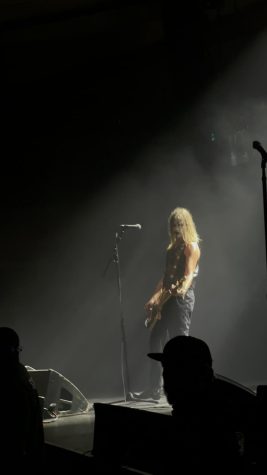The future of punk, and it’s effects on modern society
December 2, 2022

The spread of punk culture is similar to weeds sprouting up in a field of grass. Some of the country’s most conservative areas are likely to have the largest populations of punk bands and artists who all share the goal of rebelling against mainstream culture and most political ideologies. Starting in the late seventies, punk represented a hatred for the government and those in power, as well as being an outlet for those who just needed to get out their feelings in a place where they could feel safe.
The punk scene became more underground in the eighties and started political riots and social activism that led to new laws and regulations for human rights. In the nineties, punk started to enter the mainstream and became a trend for people to follow, which led to the birth of the parasitic “bro punks” who seem to be less interested in the culture and more interested in the following they can gain by being a part of it. This subgroup of people usually consists of heavy conservatives and right-wing activists who burrow their way into the community.
I interviewed a friend of mine and a Canyon alumni, Ian Pace, the bass player for the band Insomnia, and he had this to say about the topic,“bands like Pennywise and Dropkick Murphys tend to draw in the ‘bro punk’ crowd, mostly 40-year-old overweight Huntington Beach dads who wanna start fights in the pit.” When asked if these kinds of punks are super common here in Orange County, he responded with, “yeah those guys are prevalent in OC shows, it’s like a living stereotype; those are the guys you’ll see acting in ways that most punks would denounce, and honestly, most of them were always conservative and punk was more about their rebel phase or motor cross phase in their college years.”
With punk being so connected with politics, and its anarchist following, a lot of the political and social aspects of the culture are influenced by it. An example of this would be the satirical song, “kill a commie” by Gang Green. This song was written to make fun of the conservative extremist views of communist countries during the Cold War, with the lead singer mocking the belief in “dying for your country” or “dying for American imperialism.” More songs that fit this description are NPFO by Dead Kennedys, Born to Die by MDC, and People of the Lie by Kreator.
What an artist can do, is different from anything a politician or activist can do. Music affects us emotionally and can affect our empathy and ways of thinking. In the case of most music and its effects on the world as a whole, the songs being written are designed to gain access to your head, your thoughts, and your ambitions. The question is, once they’re in there, what will they do?
